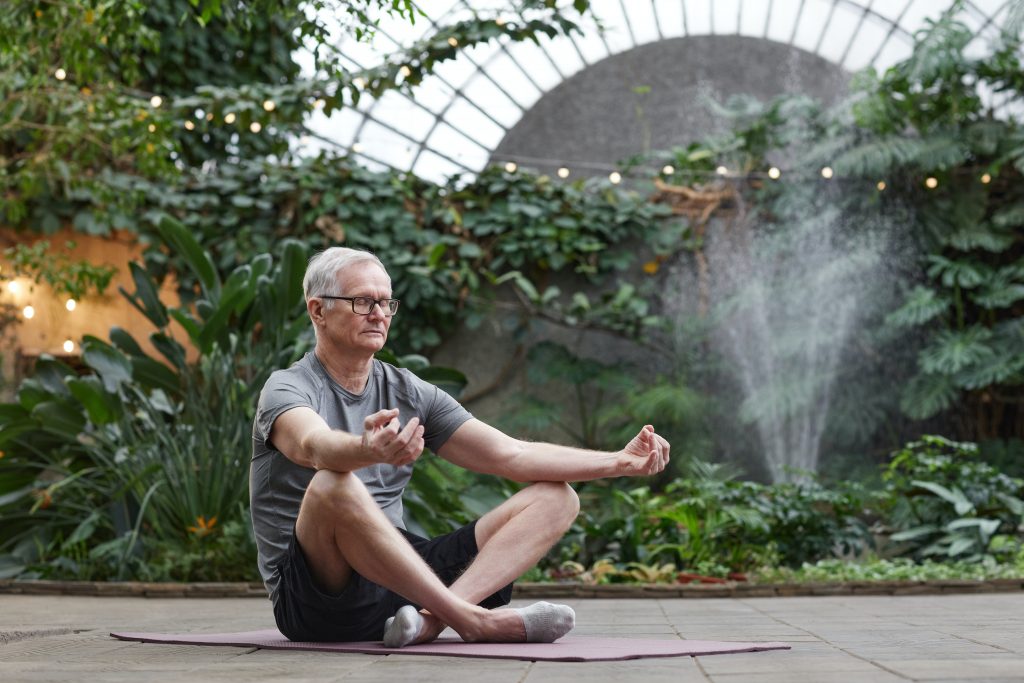Powerful drugs and treatments play a vital role in tackling prostate cancer, but there are other measures that can help – and one such is mindfulness.
It’s a form of meditation that dates back thousands of years, but a growing abundance of research suggests it has many modern-day applications – including for those living with cancer.
Mindfulness aims to encourage you to focus on the moment, on the sights and sounds around you, and to treat the chatter of concerns and thoughts in your head as if they were no more than passing traffic.
The evidence suggests it’s an approach that can be especially beneficial for men undergoing active surveillance. This is used for slow-growing cancer and means men have regular check-ups to monitor the progression of their tumour rather than actual treatment.
Many men struggle to cope with the idea that they are in effect leaving their cancer to it and studies suggest up to one in four on active surveillance eventually become so anxious that they opt for treatment such as surgery within one to three years of diagnosis – even when there is no sign of tumour progression.
However, one study by researchers at Northwestern University in Chicago in 2017 found men undergoing active surveillance who took up mindfulness fared much better.
Researchers split a group of 43 men on active surveillance in two and put half on an eight-week programme called Mindfulness Based Stress Reduction. The rest had no training.
Over the two-month period, those meditating daily reported significant decreases in anxiety and improved mental health.
They were also able to cope much better with the uncertainty of waiting to see if things got worse and showed stronger post-traumatic growth – a term used to describe positive psychological change after a traumatic event.

But could meditation do much more than settle an anxious mind and possibly even alleviate cancer pain?
The data on this appears to be less conclusive, but some studies do suggest it can help.
One recent review, published in December 2021 by researchers at the University of Cordoba, Spain, looked at all the published science on meditation and cancer pain between 2015 and 2020 – sifting through findings from ten different studies.
They found regular mindfulness sessions were actually one of the most effective non-drug methods for easing pain from a wide range of cancers, including prostate. That’s not to say they're necessarily a substitute for pain-relieving medicines, but they may help some people cope with the discomfort better.
Interestingly, the review found that mindfulness meditation had a more powerful pain-relieving effect than some other ‘alternative’ methods, such as music therapy (where favourite sounds are listened to as a distraction from the pain) or even yoga.
And the good news is you can access this kind of meditation anywhere at anytime. If you’re out on a walk, for instance, just trying to bring your thoughts back to the here and now – instead of worrying what you are going to do next or what might happen tomorrow – is one way to incorporate mindfulness into your life.
But you can also take a more structured approach. In the UK, for example, the charity Macmillan Cancer Support, offers a free online course for cancer patients called Be Mindful. Please click here for details.
Each session lasts 30 minutes and a course is ten sessions. It teaches meditation, breathing exercises and stretching, along with cognitive therapy to help users change unhelpful patterns of behaviour.




